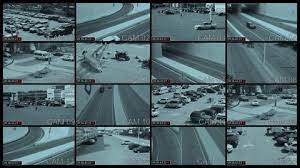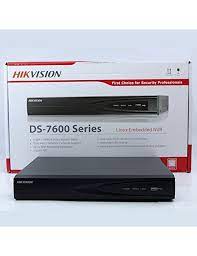As technology continues to advance, CCTV video surveillance systems have become an integral part of ensuring security and monitoring in various environments. Closed Circuit Television (CCTV) cameras are widely used in both residential and commercial settings to deter crime, enhance safety, and provide valuable evidence in case of incidents.
One of the key advantages of CCTV video is its ability to provide continuous monitoring of a specific area. Whether it’s a retail store, office building, parking lot, or residential property, CCTV cameras can capture real-time footage that can be monitored live or reviewed later. This constant surveillance acts as a powerful deterrent against criminal activities such as theft, vandalism, and trespassing.
In addition to prevention, CCTV video footage plays a crucial role in investigations and resolving disputes. In the event of an incident, authorities can review the recorded video to identify suspects, track their movements, and gather evidence for legal proceedings. This not only helps in solving crimes but also provides peace of mind to property owners and residents.
Furthermore, advancements in CCTV technology have led to the development of sophisticated features such as motion detection, night vision capabilities, remote access via mobile devices, and high-definition video quality. These features enhance the effectiveness and efficiency of CCTV systems, making them more reliable for security purposes.
Overall, CCTV video has proven to be a valuable tool for enhancing security measures and maintaining a safe environment. Whether it’s for preventing crime, ensuring workplace safety, or monitoring public spaces, the presence of CCTV cameras offers a sense of security and peace of mind to individuals and communities alike.
Key Questions Answered: Understanding CCTV Video Surveillance Systems
- What is CCTV video surveillance?
- How does CCTV video surveillance work?
- What are the benefits of using CCTV video cameras?
- What are the different types of CCTV cameras available?
- How can I install a CCTV video surveillance system in my home or business?
- Are CCTV video recordings admissible as evidence in legal proceedings?
- How can I ensure the privacy and security of CCTV video footage?
- What should I consider when choosing a CCTV video surveillance system?
What is CCTV video surveillance?
CCTV video surveillance refers to the use of Closed Circuit Television cameras to capture and monitor activities in a specific area or location. These cameras are connected to a centralized system that records and displays the footage for security and monitoring purposes. CCTV video surveillance is commonly used in various settings such as homes, businesses, public areas, and government facilities to deter crime, enhance safety, and provide visual evidence in case of incidents. By continuously recording and monitoring activities, CCTV video surveillance helps in maintaining security, preventing unauthorized access, and ensuring a safe environment for individuals and properties.
How does CCTV video surveillance work?
Understanding how CCTV video surveillance works is essential for grasping its effectiveness in enhancing security measures. CCTV systems consist of cameras strategically placed in desired locations to capture video footage of the area under surveillance. These cameras are connected to a central monitoring station or recording device where the footage is stored and can be accessed for live viewing or playback. In addition, modern CCTV systems often utilize digital technology, allowing for remote access to the video feed via smartphones or computers. The recorded footage serves as valuable evidence in case of incidents, aiding in investigations and ensuring a safer environment for both residential and commercial spaces.
What are the benefits of using CCTV video cameras?
There are numerous benefits to using CCTV video cameras in various settings. One of the primary advantages is the enhanced security they provide by acting as a visual deterrent against criminal activities such as theft, vandalism, and trespassing. CCTV cameras also offer round-the-clock monitoring, allowing for real-time surveillance and recording of activities in a given area. In addition, the footage captured by CCTV cameras can serve as valuable evidence in investigations and legal proceedings, helping to identify suspects and resolve disputes effectively. Furthermore, modern CCTV systems come equipped with advanced features like motion detection, remote access, and high-definition video quality, making them versatile tools for ensuring safety and security in both residential and commercial environments.
What are the different types of CCTV cameras available?
When it comes to CCTV cameras, there are several different types available to cater to various surveillance needs and environments. Some common types of CCTV cameras include dome cameras, bullet cameras, PTZ (Pan-Tilt-Zoom) cameras, and covert cameras. Dome cameras are popular for their discreet design and 360-degree coverage, making them suitable for indoor surveillance. Bullet cameras are known for their long-range visibility and weatherproof construction, making them ideal for outdoor use. PTZ cameras offer the flexibility of remote control to pan, tilt, and zoom in on specific areas of interest. Covert cameras are designed to be hidden or disguised for discreet monitoring purposes. Each type of CCTV camera has its unique features and benefits, allowing users to choose the most suitable option based on their specific security requirements.
How can I install a CCTV video surveillance system in my home or business?
Installing a CCTV video surveillance system in your home or business can be a straightforward process with the right approach. To begin, assess your security needs and determine the areas you want to monitor. Next, choose the appropriate CCTV cameras based on factors such as indoor or outdoor use, resolution quality, and night vision capabilities. Plan the camera placements strategically to cover key entry points and vulnerable areas.
Once you have selected the cameras, ensure that you have the necessary equipment such as cables, power supply units, and a digital video recorder (DVR) or network video recorder (NVR). Mount the cameras securely at optimal angles for maximum coverage and visibility. Connect the cameras to the DVR/NVR using proper cabling and power them on.
Configure the system settings according to your preferences, including motion detection sensitivity, recording schedules, and remote access options. Test the system thoroughly to ensure all cameras are functioning correctly and capturing clear footage. Finally, consider consulting with a professional installer for more complex setups or if you require additional assistance in setting up your CCTV video surveillance system.
Are CCTV video recordings admissible as evidence in legal proceedings?
One frequently asked question regarding CCTV video is whether the recordings are admissible as evidence in legal proceedings. The answer to this question is yes, CCTV video recordings are often considered valuable evidence in court. The footage captured by CCTV cameras can provide crucial visual documentation of events, actions, and individuals involved in a case. Courts typically accept CCTV video as evidence if certain criteria are met, such as ensuring the authenticity of the footage, maintaining proper chain of custody, and demonstrating that the recording has not been tampered with. When presented correctly, CCTV video recordings can significantly support investigations, establish timelines, and contribute to the resolution of legal disputes.
How can I ensure the privacy and security of CCTV video footage?
Ensuring the privacy and security of CCTV video footage is a critical concern for both individuals and organizations. To safeguard the integrity of recorded data, it is essential to implement robust security measures such as encryption, password protection, and restricted access control. By encrypting the CCTV video footage, unauthorized users are prevented from viewing or tampering with the recordings. Additionally, setting up strong passwords and regularly updating them can prevent unauthorized access to the system. Limiting access to only authorized personnel through user authentication protocols further enhances the security of CCTV video footage, ensuring that sensitive information remains protected at all times.
What should I consider when choosing a CCTV video surveillance system?
When choosing a CCTV video surveillance system, there are several important factors to consider to ensure that you select the right system for your specific needs. Firstly, consider the area you need to cover and determine the number of cameras required to provide adequate coverage. Assess the lighting conditions in the area as well, as this will impact the type of cameras needed, such as those with night vision capabilities for low-light environments. Additionally, think about whether you need features like motion detection, remote access, and video storage options based on your monitoring requirements. It’s also crucial to choose a reputable vendor that offers quality products, reliable technical support, and installation services to ensure that your CCTV system functions effectively and provides the security you need.




